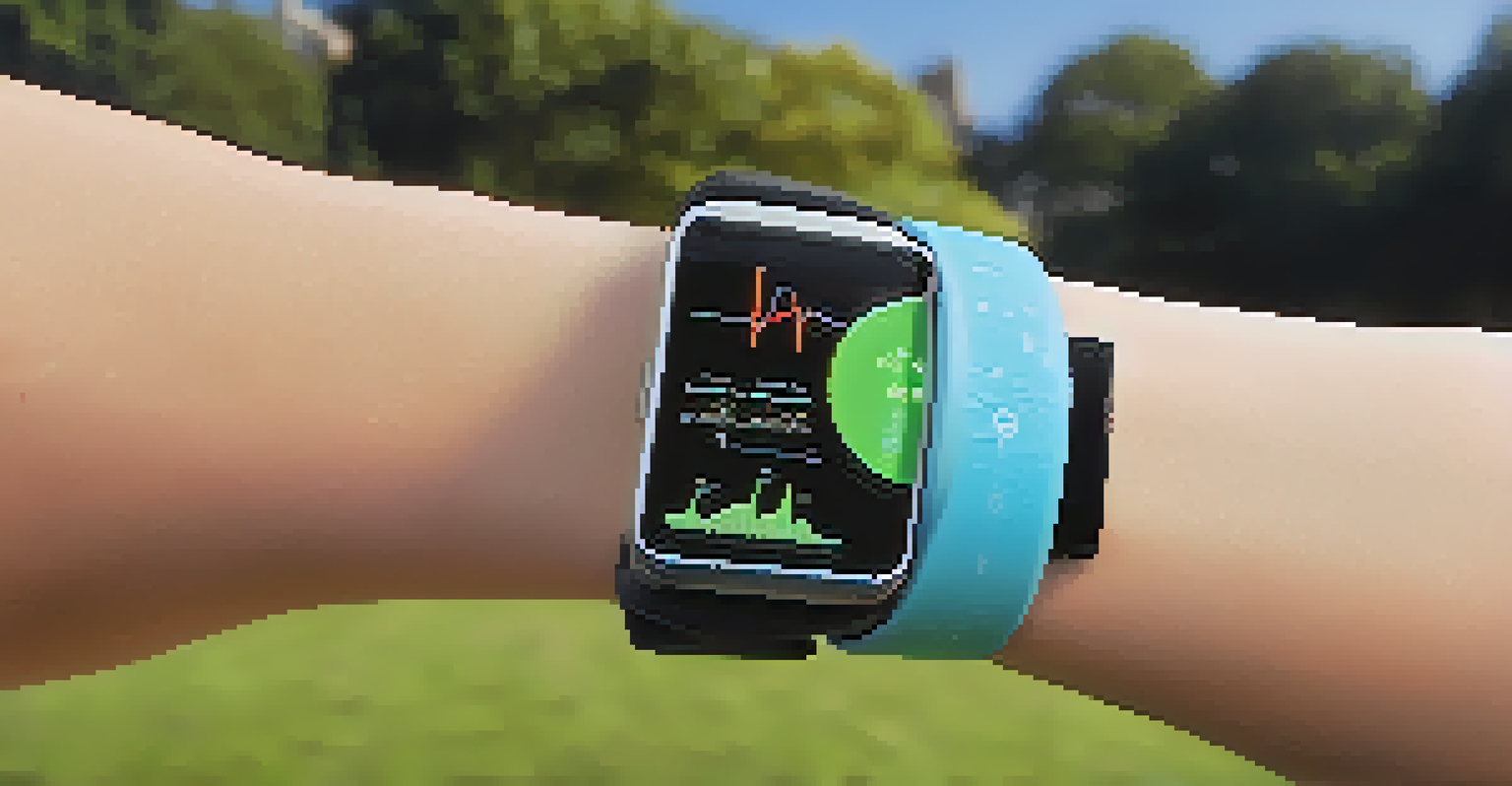The Future of Personalized Medicine Through Health Tech

Understanding Personalized Medicine and Its Importance
Personalized medicine is a tailored approach to healthcare that considers individual differences in patients' genes, environments, and lifestyles. Unlike the traditional one-size-fits-all model, it aims to provide specific treatments based on a patient's unique profile. This method can lead to more effective therapies and reduced side effects, making healthcare more targeted and efficient.
Personalized medicine is the future of healthcare, as it tailors treatment to the individual rather than the average patient.
Imagine visiting a doctor who can predict your response to a medication based on your genetic makeup. This scenario is becoming increasingly feasible as advances in genomics and biotechnology unfold. Personalized medicine is not just a futuristic concept; it’s a dynamic field that is already improving patient care today.
With the integration of health technology, personalized medicine is set to soar, revolutionizing how we understand and treat various diseases. By leveraging data from wearables, genetic testing, and electronic health records, healthcare providers can create more precise and effective treatment plans.
The Role of Health Tech in Personalized Medicine
Health technology is the backbone of personalized medicine, enabling healthcare providers to gather and analyze vast amounts of data. From electronic health records (EHRs) to telemedicine, these tools help clinicians develop a clearer picture of each patient's health. Health tech not only streamlines data collection but also enhances patient engagement through mobile apps and online platforms.

For example, wearable devices like fitness trackers monitor vital signs and activity levels, providing real-time data that can be invaluable for personalized treatment plans. This information allows healthcare professionals to make well-informed decisions, ensuring that treatments align closely with a patient's specific health needs.
Personalized Medicine Enhances Care
This tailored approach aims to provide specific treatments based on individual genetic, environmental, and lifestyle factors.
Moreover, the rise of artificial intelligence (AI) in health tech is transforming how we interpret data. AI algorithms can analyze patterns that humans might miss, leading to quicker and more accurate diagnoses that can be tailored to individual patients.
Genomics: The Heart of Personalized Medicine
Genomics plays a pivotal role in personalized medicine by helping us understand how genes influence health and disease. Through genomic sequencing, doctors can identify mutations that may predispose individuals to certain conditions. This knowledge allows for preventative measures or targeted therapies that address the root cause of a disease rather than just its symptoms.
The greatest promise of personalized medicine lies in its ability to improve patient outcomes through targeted therapies.
Consider the case of cancer treatment: genomic testing can reveal specific mutations in tumors, guiding oncologists to choose the most effective therapies. This targeted approach not only improves outcomes but also minimizes damage to healthy tissues, enhancing the overall quality of life for patients.
As genomic technologies become more accessible and affordable, we can expect them to become a standard part of personalized medicine. This shift will empower patients and providers alike to make informed decisions based on genetic insights.
Data Privacy and Security Challenges in Health Tech
While health tech offers incredible potential for personalized medicine, it also raises significant data privacy and security concerns. As more personal health information is collected and shared, the risk of data breaches increases. Patients must feel confident that their sensitive information is protected, or they may hesitate to fully engage with these technologies.
Regulations like HIPAA (Health Insurance Portability and Accountability Act) are in place to safeguard patient data, but the rapid pace of technological advancement often outstrips existing laws. This highlights the need for ongoing dialogue between technologists, healthcare providers, and policymakers to ensure that privacy measures evolve alongside health tech.
Health Tech Fuels Personalization
Innovations like wearable devices and AI are crucial in gathering and analyzing data to create more effective treatment plans.
Furthermore, educating patients about their rights and the importance of data security is crucial. Empowering individuals to take charge of their health information can foster trust and encourage the adoption of health technologies.
Telemedicine: Bridging Gaps in Personalized Care
Telemedicine has emerged as a vital tool in personalized medicine, especially in the wake of the COVID-19 pandemic. It allows healthcare providers to reach patients in remote areas or those who may have difficulty accessing traditional healthcare settings. This accessibility is crucial for delivering personalized care that meets patients where they are.
For instance, a patient with a chronic condition can have regular check-ins with their healthcare team via video calls, ensuring that their treatment plan is continually adjusted to their needs. This ongoing communication fosters a collaborative relationship between patients and providers, enhancing the effectiveness of personalized treatments.
As telemedicine continues to evolve, we can expect more sophisticated platforms that integrate data analytics and AI, further refining the personalization of care. The result? Health tech will not only make healthcare more accessible but also more tailored to individual needs.
The Future of Drug Development in Personalized Medicine
The future of drug development is shifting toward more personalized approaches, thanks to advancements in health tech. Traditional drug trials often take a one-size-fits-all stance, but as we embrace personalized medicine, we can expect more targeted therapies that cater to specific genetic profiles. This shift could lead to faster, more effective drug development processes.
For example, pharmaceutical companies are increasingly using biomarkers to identify which patients are likely to benefit from a particular drug. This not only improves patient outcomes but also reduces waste in drug development, as resources are focused on the patients who will gain the most benefit.
Data Privacy Remains a Concern
As health tech advances, ensuring the security and privacy of patient data is essential to build trust and encourage technology adoption.
As we look ahead, the integration of health tech in drug development will likely streamline clinical trials and enhance collaboration among researchers, clinicians, and patients. This collaborative environment will accelerate the journey from lab to market, bringing innovative treatments to those who need them most.
The Impact of Personalized Medicine on Patient Outcomes
Personalized medicine holds the promise of significantly improving patient outcomes across various healthcare landscapes. By considering individual factors, treatments can be more effective and tailored, leading to better health results. This approach not only helps in managing existing health conditions but also in preventing potential diseases.
For example, patients with diabetes can benefit from personalized treatment plans that take into account their unique metabolic responses. This tailored approach can lead to better blood sugar control and a lower risk of complications, ultimately enhancing the patient's quality of life.

As personalized medicine continues to evolve through health tech, we can anticipate a future where patients are more engaged and empowered in their healthcare journeys. This shift not only fosters trust between patients and providers but also encourages adherence to treatment plans, resulting in improved health outcomes for all.